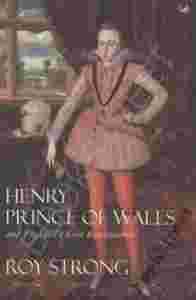|
When the eighteen-year-old Henry, Prince of Wales,
died in November 1612, the hopes of a new generation had
been dashed. For the Prince, eldest son of James I, and
her brother of the future Charles I, epitomized the
yearning of those who wished England to lead Protestant
Europe in a great crusade against the might of Catholic
Spain. He simultaneously embodied the aspirations of a
new era in the arts, creating a court which would have
rivalled those of the Medici grand dukes in Florence or
what of Rudolf II in Prague. A complex, withdrawn yet
assertive figure, the Prince, evoking the former glory
of Elizabethan England, was the antithesis of his
father. With their markedly different personalities and
their sharply opposed views on the religious and
political issues of pre-Civil War England, father and
son inevitably clashed continually. James, moreover,
found himself outshone by an heir whose far-ranging
interestes embraced not only the arts but also the Navy,
equestrianism, garden design, festivals and the
sciences.Had Henry become King rather than his brother
Charles, England might well not only have found herself
mobilizing her forces on the mainland of Europe in the
Thirty Years' War, but also have been spared the
consititutional crisis and civil war provoked by Charles
I's disatrous rule. This is the first major study of
'Henry IX', using original documents and sources to have
been written since 1760. Is is the story of a great
renaissance tragically cut short. |
|

